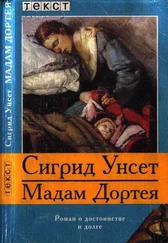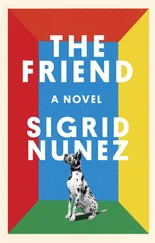He didn’t want her to sit down on the sofa next to him, but she did. He didn’t want her to put her arm around him, but she did. He wanted to be alone. He wanted to go up to his room. He didn’t want to talk, but he knew she would. Why did she always do the wrong thing?
Now that his father was sick she was all upset. His father, whom she was secretly planning to dump. (“The truth is, Addy, I feel like I’ve done my duty. I don’t owe this man the rest of my life.”)
She hadn’t been able to reach the doctor. He was just a name to her: Dr. Corbutt. The only primary-care doctor in the area still taking new patients enrolled in the college’s insurance plan. She had reached a recording saying people who thought they had the flu should not come into the office or go to the hospital. They should stay home instead and call a certain number. But when she tried calling that number it was busy.
“Of course, we don’t know for sure if it even is the flu,” she said. “Anyway, I’ll try again later. Let’s talk about dinner. I’m afraid it’s slim pickin’s.”
Very long ago, it seemed, he’d been sent home from school with a pamphlet about Emergency Home Preparedness. Every home should always have on hand at least a three-week supply of food, water, and medication for each member of the family.
“But there’s frozen pizza. You like that. I could heat up some vegetable soup, and we could have that with the pizza. Would you like that, sweetie?”
Something was being shredded inside him.
He wasn’t afraid of the flu anymore. He wasn’t afraid of everyone dying. He believed his parents when they said they weren’t going to die. They were made of sturdy stuff. None of them would die. They would all go on living, day after day, in the same dumb, totally fucked-up way.
“Cole! What is it, Cole?”
Why did it always sound more loving when she said his name than when she called him sweetie or pumpkin?
“Are you scared, Cole? No? Then what is it? Are you homesick? Do you miss your old school? Are you afraid you won’t make any friends here? Come on, Cole. Words , remember?”
He remembered. She used to say it all the time when he was small. “Words, Cole, words. I’m not a mind reader. But if you give me the words, I’ll bet I can make the bad go away.”
And it was true! It had worked— then .
Rather than cry, he swore he would gouge his own eyes out.
Imagine you swallowed an empty balloon and then somehow it started inflating.
He didn’t want to bury his face in her neck and ball his fists and sob and sob till he got the hiccups like some fucking five-year-old. But once he had done that, he felt better.
He still didn’t want to talk. But he sat in the kitchen and kept his mother company while she heated the soup and the pizza. And then they ate together in peace.
THE NEXT MORNING his father was able to sit up in bed for an hour or so and work on his laptop. He was able to eat breakfast but refused lunch, saying he didn’t think he could keep it down. By afternoon all he could do was sleep.
His mother kept calling both the doctor’s office and the special number she’d been given but without getting through to either.
Cole was forbidden to enter the sickroom. From time to time, if he saw the door open, he’d stop and linger awkwardly in the doorway.
“You okay, Dad?”
“I’ll survive, kiddo. Don’t forget to wash your hands.”
His mother, on the other hand, spent much of the day in the room, and at night she slept there, not in the bed but on a yoga mat on the floor. She used a cotton scarf for a mask—a blue bandanna that she wore to keep her hair back when she did yoga—and washed her hands so often they were becoming raw. She worried about his father’s fever but couldn’t say how high it was, the thermometer being one of several items that had managed somehow to get lost in the move from Chicago. And there were no more thermometers to be found at the drugstore.
And once they’d used up the aspirin they had on hand, that was it. Like surgical masks and thermometers, cold and flu medication had run out everywhere. Rubbing alcohol, mouthwash, bleach—anything containing germ killer was also sold out. Except, of course, online. The Web was full of ads not only for ordinary meds like aspirin but for a million products promising to prevent or cure flu.
A mine of misinformation.
Bloggers around the world swore by the power of this or that herb: holy basil, astragalus, elderberry.
If you drank a certain tea, if you ate a certain root, if you practiced meditation every day, if you took mega doses of Vitamin D, you would not get sick.
Rub yourself down with onion or garlic. Take garlic pills, chew garlic, carry garlic cloves in your pockets. Try acupuncture.
A positive psychological outlook was essential, and the more good deeds a person performed, the less likely he or she was to get infected.
Because the second wave was so much more severe than the first, a lot of people refused to believe it could be the same disease. It had to be terrorism. They didn’t care what medical experts kept telling them, about how it was the nature of influenza to occur in waves and that there was nothing about this pandemic, terrible though it was, that wasn’t happening more or less as had long been predicted.
No, not bioterrorism, others said, but a virus that had escaped from a laboratory. These were the same people who believed that both Lyme disease and West Nile virus were caused by germs that had escaped many years ago from a government lab off the coast of Long Island. They scoffed at the assertion that it was impossible to say for sure where the flu had begun because cases had appeared in several different countries at exactly the same time. Cover-up! Everyone knew the government was involved in the development of bioweapons. And although the Americans were not the only ones who were working on such weapons, the belief that they were somehow to blame—that the monster germ had most likely been created in an American lab, for American military purposes—would outlive the pandemic itself.
In any case, according to a poll, eighty-two percent of Americans believed the government knew more about the flu than it was saying. And the number of people who declared themselves dead set against any vaccine the government came up with was steadily growing.
Just before she fell sick, the president addressed the nation.
“We have reached the point where our hospitals, clinics, and other health centers are overwhelmed. Communities everywhere are struggling with a shortage of health care workers, not only because of the many who are out sick but because of those who are quitting their jobs or refusing to show up for work. While the fear these workers must feel is understandable, our survival depends on them, and so we command all those whose duty it is to care for the sick not to shirk that duty. Your country needs you. At the end of the day, when this peril is behind, you will be remembered as America’s heroes. Your courage and sacrifice will never be forgotten. And those who abandon their posts today should bear in mind that neither will this be forgotten. A day of reckoning will come.
“At this time we also call on all able-bodied retired doctors, nurses, and others trained in health care to volunteer their services. Some have already done so, and we praise and thank these fine people. But the need for skilled hands grows more urgent every day, and their number remains far too few.
“Finally, we call on all ordinary citizens to do their part. Who will take care of the sick if not their own family, friends, and neighbors? We are hearing far too many stories of people running away, leaving deathly ill loved ones behind. There have been heartbreaking reports of flu victims who might have survived had there only been someone to fetch them water.
Читать дальше













